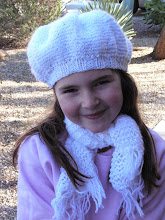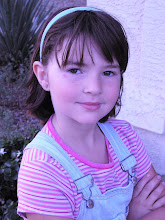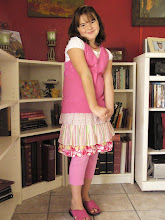FACT VS. TRUTH
I was standing in the hallway at school when I received the call that my mother had been admitted to the Kingman Regional Medical Center’s Intensive Care Unit. My dad told me that I didn’t need to come to Kingman right away, that I should finish out the day and he’d call me later to let me know how things were going. I walked up to the front office, for that was where I had been heading before I got the call, to drop something off at the principal’s secretary’s desk. Paula, the principal’s secretary, took one look at me and knew that something was wrong. I calmly explained that my mother had been admitted to the hospital and that I was waiting to hear back from my dad. She told me that I needed to get a substitute and leave for Kingman immediately. “Don’t worry about a thing. If I have to, I’ll cover your classes.” Those were the last words I heard though I know others were said before I left her desk.
I called my husband to tell him the news and that I was leaving immediately. I didn’t even go home to pack any clothes. I dropped everything and left. The drive to Kingman seemed surprisingly quick. I walked into the hospital and took the elevator up to the ICU. I saw my dad sitting in a chair across from the elevators as if he was waiting for me. He told me that he had hoped I would come, and he held me so tight and for much longer than he usually would. The doctor appeared behind him and looked rather intent on talking with the two of us. He led us to a room with a large conference table. What came next and in what order things were said, I can’t remember. All I remember is my dad looking to me for an answer to a question I had never thought that I would have to answer —should we let my mother die? In peace and comfort, or continue this losing battle with cancer?
THE EMOTIONAL TRUTH
I was standing in the hallway at school when I received the call that my mother had been admitted to the Kingman Regional Medical Center’s Intensive Care Unit. That unsettling feeling of being in inescapable trouble gripped me. It was like being at the top of a rollercoaster just as it tips downward for the fall, but I knew this ride was not going to end with joyful laughter. My dad told me that I didn’t need to come to Kingman right away, that I should finish out the day and he’d call me later to let me know how things were going. Though he said these words, I didn’t fully believe him. There was something in his voice, a small indication of insecurity and doubt. I knew that he was considering all the days I had already taken off from work to help him care for my mother—all the times I left Phoenix on a Thursday and didn’t return until Monday morning for work. He knew I had already used up my sick leave. When I hung up my cell-phone, my mind was racing—what could I do, what should I do, can I afford to lose more of my pay? Perhaps he was right, I should finish up the day and then go. Not going was not an option for me,
and I consoled myself with the thought that I’d leave right after school. I walked up to the front office, for that was where I had been heading before I got the call, to drop something off at the principal’s secretary’s desk. Paula, the principal’s secretary, took one look at me and knew that something was wrong. I calmly explained that my mother had been admitted to the hospital and that I was waiting to hear back from my dad. I could feel the tears beginning to form as she looked into my eyes. She had recently lost her mother, and there was a part of me that didn’t want to bring up painful memories for her, so I tried to seem nonchalant about the situation—I didn’t succeed. She lectured me, though gently, telling me that I did not want to wait and that I should leave for Kingman immediately. “Don’t worry about a thing. If I have to, I’ll cover your classes.” Those were the last words I heard though I know others were said before I left her desk.
I called my husband to tell him the news and that I was leaving immediately. He had questions for me, and I believe I had answered them all, but honestly I can’t recall what they all were. I just remember explaining what he needed to do for the baby: when to pick her up, where he could find her clothes, about what time I put her to bed. Fathers don’t often concern themselves with such things when the mother always does it, so I felt the need to clarify. Once my daughter was taken care of, I dropped everything else and left. I didn’t even go home to pack clothes for myself.
The drive to Kingman, though it is a three and half hour trip, was surprisingly quick. I remember getting into my car and getting out at the hospital. As if on auto- pilot, I simply drove. I must have recognized the scenery and I must have thought about things as I was driving, but it all escapes me now, just as it did then. I walked into the hospital and took the elevator up to the ICU. I saw my dad sitting in an armchair across from the elevators as if he was waiting for me, though I had never called to tell him I was coming. His face was full of emotion as if he was trying to hold back years of tears. And there was pride as well, pride in me to know just what he really needed and wanted, though he would never say. With lips trembling he told me that he had hoped I would come, and he reached for me, hugging me tight, not wanting to let go. The doctor appeared behind him and looked rather intent on talking with the two of us. He led us to a room with a large conference table. It was obvious to me that this was not the first time my father had been in this room. I felt the chill in the air as the doctor closed the door and we took our seats around the table. I imagined my father sitting alone in this room listening to all that the doctor had to say and I silently thanked Paula for convincing me not to wait a moment longer. What came next and in what order things were said, I don’t know. All I remember is my dad looking to me for an answer to a question I had never thought that I would have to answer —should we let my mother die?
Response to Questions:
The difference between factually accurate and emotionally true, at least for me, is that much of the emotion or the thoughts going on during the factually accurate events is left out. I didn’t feel the need to include all that I was thinking while events were taking place or much regarding the details of faces or looks. I simply wrote what had happened. In the emotionally true piece, I added more of what was going on behind the action and I enjoyed (well as much as one can enjoy sort of reliving a painful experience) writing the emotionally true version. It’s hard to capture the emotion of those moments, and there is a certain numbness that I still feel while reliving the event. I experienced it all in a fog. I remember thinking I have to be strong for my father and so I was; I didn’t allow myself to cry during the whole ordeal.
I think my emotionally true version captures some of that numbness, though I teared up a little while writing it, especially the part where I saw my father and he held onto me. I can still feel that embrace. I enjoyed writing this piece because it is the most emotionally significant event in my life, next to giving birth to my daughter (in the warmth and comfort of my own home). Losing my mother, and in the way that it happened, has changed me forever. Writing about it, I am hoping will, in some way, help me in dealing with it. Even after 7 years, I cannot say that I am over it. I’m not sure one can ever be “over it.” I left off the last line from the factual version in the emotionally true one because I felt that the question was what really mattered. It made no difference what was killing my mother—the emotion lies within the question of whether we will allow her to die.









No comments:
Post a Comment